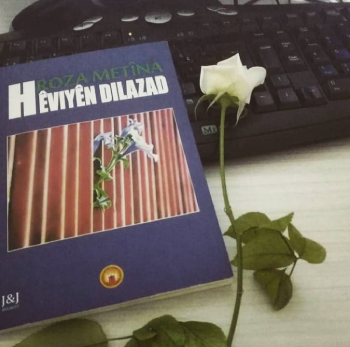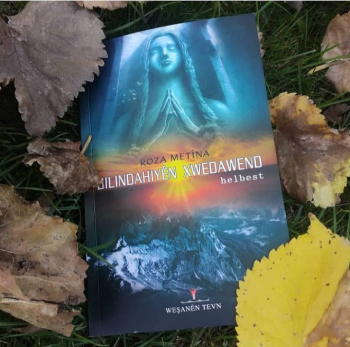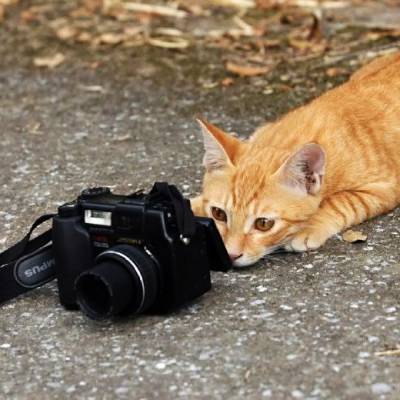Français | English
Roza Metîna is a Kurdish writer from the town of Derik in Mardin province. We met her in Diyarbakır in the café on the “rue des Arts”, on a spring day when the rain was coming down in sheets.
How did you start writing ?
I started very young. But in public schools, we did not have access to schooling in our maternal language, we had to access our schooling in Turkish. For this reason we did not have the possibility to read and write in our own tongue. Yes, of course, when I started school, I knew my own tongue, since we spoke Kurdish at home. If truth be told, not everyone was as lucky as I was, most Kurds because of State oppression are caught up in assimilation and do not speak their own language at home. I spoke it, but since the schooling was in Turkish, my first poems, my first compositions were in Turkish. I finished secondary school in Derik, then moved on to university studies in Amed (Diyarbakır).
At the time, there were Kurdish classes here at the Kurdî-Der center. I started attending them. Speaking a language is one thing, reading and writing it is quite another. I did not know how to read or write in my maternal language… Later, the association was shut down by decree, like many others here… Most of the structures in the field of culture, of language, were shut down in this way. So I began my schooling at the Kurdî-Der center, then I went on writing in Kurdish. Because I became aware of what follows: you use the language in which you write. You dream in the language in which you write. For years, I was crushed under the Turkish language, for years my identity, my existence were under attack. So I did not wish to go on writing in Turkish, I wanted to begin anew with Kurdish. Because there are precious names in Kurdish literature. Such as Mesture Kurdistani…She is a remarkable Kurdish woman in Middle-Eastern history. I can also mention Ahmed‑ê Xani Cigerxwîn, Baba Tahire Uryan… These authors are classics not only in Kurdish, but in world literature. I have drawn much inspiration from them, and my own tongue is truly enough to express everything. I tell myself “I have a powerful language, a strong literature, why should I not use my own literature ?”
”
You dream in the language in which you write.
Numerous research show that the first literary forms find their origins in native soils. Here we are in a very rich region where History began. When seen under this angle, we could say that Kurdish literature in one of the foundations of world literature, in a way. But we constantly regret one thing: “Why does world literature not take hold of Krudish literature ? Why does it ignore it and close its eyes to the oppressions to which it is subjected?,” Hasankeyf, for instance…From a Historical perspective, it is a most precious location; And yet, despite the fact the village was under the protection of UNESCO, that entire part of History is now under water. In fact, I consider it is not only Kurdish History that was drowned but world History. We look at the world. We see them saying “we condemn, we denounce”, but nothing is done in practical terms. Really, for Kurdish literature, and consequently, for world literature to be protected, measures must be taken.
What do you write about?
When I started writing in my maternal language, I began with poetry. I have three books of poetry in Kurdish. My poems are about love as well as about the struggle of the Kurds, or again, about women…And a tale I wrote for children “Sêgose û Çargose” (The triangle and the square). It is about child development and tells them about colors, friendship, but also hygiene… An educational tale, in other words.
I have not written any novels but I’ve received four prizes for my short stories. They are about women who lost their life in the struggle for freedom. For instance, I wrote about Mother Taybet. This women’s body remained in the dusty street in Cizre, for seven days. Can you imagine? A woman dies, her remains stay on the ground and her children can do nothing except keep an eye on them from afar, with the fear that dogs will come to eat her body… I wrote about Cemile. Still a child, Cemile was killed in front of her house as she was stepping out to get bread. Her mother had to store her corpse in the freezer so it would not rot during the curfew period. I wrote about Sevê, Pakize and Fatma, three political women killed in Silopi, just as were the three Kurdish women who were assassinated in France. The fact three women were targeted in this way is not trivial. This type of attack targets women’s struggles worldwide. Imagine a country where thieves walk around freely while political figures are arrested, assassinated. One can easily guess what happens. All of this is political. They are measures taken against the Kurdish liberation struggle.
So your writing is grounded in the present…
Writing about history and writing about the present are two different things. I consider myself much better at writing about the present. Why? Because I live it. These are things I have seen with my own eyes. I could have looked back further, written for example about the Dersim massacre in 1938. But I wanted to write about things I witnessed in my own life.
When we Kurds write, we also do so to fight against oblivion. For example, I wanted to write about these women so their murders would not be forgotten. It is also important to reflect realities as they are. We look toward the past, but facts are not always transmitted from the right perspective, and often, they are told erroneously. Everyone interprets them according to his or her own way of thinking. But today, we transmit that which we witness, in its total nakedness. So it will not be forgotten, so our work may find its way into the archives. At the same time, we are at the service of Kurdish literature, because we write in Kurdish.
”
When we Kurds write, we also do so to fight against oblivion.
In your opinion, is there a Kurdish women’s voice in Kurdish literature ?
These days, Kurdish women write mostly poetry. They deal with a number of themes. Some women write short stories but there are few who write novels.
Why?
When they start writing, they must face up to the pressures from society and from the system. They don’t have the possibility to express themselves through the different literary forms. This is also linked to the absence in this country of an education in the maternal language.
More generally, one of the problems in this country is that people do not read very much. Leaders and media bear a heavy responsibility for this. Because in the media, there is almost nothing to incite toward reading, to interest people in literature. The system is structured around a notion of the nation’s indivisibility, and it is rather conservative. It wishes to imprison women inside their homes. You can see this at work, for example in Turkey’s leaving the Istanbul Convention…
What are your current activities ?
I currently live in Amed (Diyarbakır). I am both a journalist and a writer. I worked as a teacher in multilingual city daycare centers where English, kurmancî and zazakî were spoken…After administrators were named (kayyum) these centers were shut down. All these institutions created for the teaching of the Kurdish language were targeted specifically. And a number of teachers were fired, particularly on February 21, the “International Day of Maternal Languages” ! I was also fired at that time. I then started working as a journalist.
I am also a member of the Kurdish PEN and I am a board member of the Kurdish Literary Association (Kürt Edebiyatçılar Derneği) which we created. Alongside this, I present a literary program on the women’s channel, Jin TV. So I’m very active in the areas of journalism and literature.
What relationship do you find between literary writing and journalism?
Both crafts feed off one another. When I compare my previous work in a daycare center and that of journalist, I can say I’m much happier with the latter because it feeds me, it feeds literature. Journalism provides us with reflexes, mechanisms for reading, observation, reflection. It teaches us to look at literature with the eyes of an investigator. In literature, reading and research are very important elements. For this reason, I think that journalism has a positive effect on literary crafts.
Do you think in literary terms, when working as a journalist?
Yes, for example, we have our news agency, Jin News and there, there is a column “women’s pens”. When working at Jin News, we also write contributions to this pen…When we must relay an information, we can include our own feelings, weave the text as we see fit in our own free will. These are elements that truly reinforce our own pen. And in order to write literature well, you need a powerful pen.
Yours is more a literary journalism or one of general information?
The agency has different departments, culture, literature, women’s pen, reports… For example, since the agency’s basic principle is to practice a journalisme “centered on women”, we give preference to interviews of women writers. You discover how the woman writes, on what topics, how she feeds literature, and you keep all that in a corner of your mind, I think all that also enriches your own writing and gives your pen more strength The more you read, the more you meet writers, the more you discover different approaches and different ways of writing. This not only shows up in the literature you produce, but in your whole life.
In your opinion, what is the current status of Kurdish literature ?
Here, we have a dengbêj culture. This is of true interest non only for Kurds but also for others. It is an oral literature. In former days, nothing was written down. Stories were transmitted through word of mouth and in stran, which is to say in song. Of course there were none of today’s advanced technologies. I still recall, when I was small in the village, we would sit around my grandfather when he came to tell stories. He recited stories, sang strans, in the dengbêj fashion. The art of dengbêj is one of the cornerstones of Kurdish literature. Had this art not existed, because of oppressions, our culture might have been moving toward extinction. The Kurdish language could have disappeared.
I think that, despite the pressures and prohibitions, Kurdish literature is healthy. If Kurds had been able to speak their language freely, without any prohibitions and had access to education in their maternal language, Kurdish literature would be in even better condition. Imagine, for example, that there is a newspaper in Kurdish, Xwebûn, which is forbidden in prisons. Kurdish prisoners want to read a newspaper in their own language, but this is not allowed. Most of the time, books in Kurdish are refused, sent back. Azadiya Welât, another newspaper in Kurdish was closed down, its staff, sentenced.
Despite all the hurdles, the Kurds, Kurdish women have led an important battle on the literary front. Of course, this struggle for survival carries a heavy cost. The Kurdish PEN has conducted a study about imprisoned writers. Currently in Turkey, 77 writers and close to 95 journalists are in prison. All of these imprisoned writers are Kurdish. And still, these are the figures we managed to obtain on our own, they may well be an underestimation.
How do you see the future of Kurdish literature ?
I relate not only literature but development in the areas of culture and society to politics in the Middle-East. If political tension exists in an area, it reflects also on other areas. Despite this, I am convinced that the future of Kurdish literature will be beautiful. Because there are writers and Kurdish poets, men and women, producing remarkable works. These are works, and all the works of today will light the future. But if war goes on in the future, literature will remain in its shadow.
And women writers ?
Women writers are subjected to oppressions everywhere in the world, but in the Middle-East, this is even more pronounced. Notably because religion is used as an instrument against them. Women have built the foundation of literature, but the men are always at the forefront and women stand behind the curtain. All these tales, these strans are woven in truth through the tongue of women. But women’s colors have not been painted because of social and moral pressures.
Nowadays, yes, there are Kurdish women writers who fight for literature. Compared to the past, they can publish more books, participate in the literary field. But despite everything, the male writers are the ones with the highest billing. Everywhere in the world the same domination prevails, that of men. Throughout world literature, a number of women writers have had to publish under masculine pseudonyms. There are women who have explored the world, disguised as men.
The dominant machismo mentality is the same everywhere, but stronger still in the Middle-East. I link this to international attitudes. Because, at the international level, States always want to profit from keeping the Middle-East in an ocean of blood and wars, since most States negotiate the sales of their weapons on the back of the Middle-East. Think of how important the numbers are of children killed during the attacks on Rojava. Those children were massacred with the weapons from those States. I think there are imperialist forces that do not want war to cease in the Middle-East.
In a way, war is the reason why women cannot move forward, in the social area as well as in literature in the Middle-East which is constantly a place of chaos and wars. You cannot move forward in a war zone. Because everyone is attempting to survive. Be it in literature, culture, art, everything stands in the shadow of war. I think this is the case in the Middle-East. Moreoever, in war zones, the first targets are History, literature. Because literature is a powerful link. And in a conflict, powerful things are targeted. This is how I relate the fact that Kurdish women are not in a more advantageous position in literature to oppressions, wars and attitudes of States at the international level.
Is finding a publishing house difficult ?
Yes, that’s another problem. Here, the publishing houses are under pressure. There are State aids for works published in Turkish. There are no aids for books in Kurdish. Kurdish publishing houses are put in a difficult position. For example, recently, the owner of J&J Editions, Azad Zal, was arrested…
Since Kurdish publishing houses have very limited means, they are forced to print books against payment [Note: meaning, financed by the author.] I don’t consider this ethical. As a writer, you sweat over the writing, then you must pay to have the book printed… If the Kurds had a State, it would distribute aids and subsidies to publishers and Kurdish authors. But since those means do not exist at the moment, both authors and publishing houses are in trouble.
Are you published in Kurdish literary journals?
My texts and poems are published in various Kurdish journals and magazines. For example, there currently exists a women’s paper published in Europe, Newaya Jin„ which publishes my writing every month. Moreover, my poems are published on the internet website Bername, Asoya Helbestê. When Azadiya Welat still existed, it had published some of my writings.
Is there a public for Kurdish literature?
It isn’t a very large public, especially for poetry. But it is a very attentive and excellent reading public. In Kurdish, novels are read, mostly. This does not only affect Kurdish literature. Generally speaking in Turkey, readership is low. Kurdish readership stands at the midpoint…Since the teaching of the maternal language is absent, most Kurds do not know how to write and read their own language.
Things would be so much better, if there were more readers… Really, what defines the future of a country, what brings it to prosperity, is the fact its society reads. Unfortunaly, most leaders in the Middle-East do not want an enlightened society…They want submissive people who accept being used for the interests of others, a flock of sheep… Because those who question are also rebels. Those who read stand tall. And, unfortunately, existing systems do not want to be confronted by enlightened and strong societies. This is why they target women first and foremost and imprison them between four walls, especially by intrumentalizing religions.
Interview conducted by Loez in April 2021
Propos traduits par Naz Oke, English translation by Renée Lucie Bourges.






